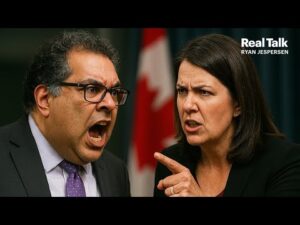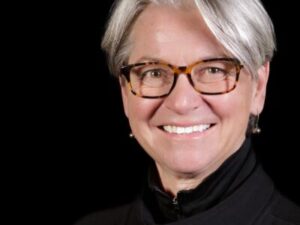Note to readers: The comments section below is now functioning. Please feel free to comment on any of my scribbling. I would like to hear what you think.
In this part I examine recent and some historical polling data on Alberta separatism. In subsequent parts I will review Premier Smith’s “address” to Albertans and her salvo of fury over Mark Carney’s cabinet choices.
Smith has clearly gone on the offensive since revelations in early February about suspicious procurement practices at Alberta Health Services surfaced. As a former colleague of mine at ATB used to characterize changing the narrative, Smith and her communications staff have embarked on a massive “head fake.”
Recent polling by the Angus Reid Institute show that 48 per cent or roughly half of a randomized sample of 790 Albertan adults are strongly or moderately in favour of a referendum on independence. The polling was conducted May 6 – 8 2025, a period which followed Danielle Smith’s address to Albertans on 5 May.
Knowledge of discussion
Parsing the data a little more reveals the following insights. On the question of respondents’ knowledge of the referendum debate there is no appreciable difference between those with high school education or less, college/technical and university respondents. Interest in the subject is higher outside Edmonton and Calgary, a finding that should not be surprising. Those with the lowest disposable income (less than $50,000) have a lower awareness of the discussion.

The poll found that 19 per cent of respondents would definitely vote to leave and 17 per cent were leaning to vote leave. Fifty-two per cent of those polled would definitely stay while 8 per cent leaned to staying.
The polling firm then went through several scenarios to test what issues might alter voting behaviour on separation. These scenarios included:
- The Conservative Party of Canada had won the federal election;
- Liberal government committing to build an energy east pipeline;
- Removal of emissions cap;
- Repeal of C-69, the so-called no-pipelines-law;
- Requirements that resource projects be assessed for environmental, health, social and economic impact and respect the rights of Indigenous peoples were eliminated;
- B.C. blocking Alberta’s access to tidewater;
- Quebec blocking a pipeline; and
- Federal government cancels the plan to make the electricity grid net zero by 2050.
For hard line separatists, accommodative federal and intergovernmental measures make little difference.
Leverage vs. Separatism
One of the questions probed was whether the premier’s dalliance with separatist forces meant She was a separatist or She was trying to gain leverage to negotiate with the federal government, or neither? This type of question reflects perceptions of many Albertans that Quebec has been successful at using the threat of separation as a bargaining card with the federal government.
Overall, 26 per cent felt Smith was a separatist with 47 per cent believing her motivations were directed at gaining more leverage on the federal government. Fifty-one per cent of NDP respondents thought Smith was a separatist while only eight per cent of UCP respondents believed Smith wants Alberta to separate. This suggests that the hardcore group of separatists within the UCP fold are in the minority.
For CPC voters in the federal election, 54 per cent believed Smith was seeking leverage while only 40 per cent of Liberal voters felt leverage was the premier’s main motivation. By region almost half of the respondents believed leveraging was Smith’s primary motivation with more rural Albertans believing that Smith is leveraging discontent. On educational attainment, more university-educated respondents felt Smith was a separatist. When sliced by disposable income those in the highest bracket felt Smith was a separatist (29 per cent) with one-quarter of those at the lowest bracket and middle brackets viewing Smith as a separatist.
Support for secession referendum
On voting for a separation referendum, 80 per cent of UCPers strongly or moderately support a vote on secession versus 8 per cent of NDP respondents. By region the strongest support for a referendum comes from rural Alberta where 60 per cent favour strongly or lean towards a separation vote. Calgary and Edmonton lean about 60 per cent opposing a referendum. This question is not really relevant given the UCP controls whether to sanction a referendum under the Referendum Act. We do know the premier has accepted in principle a referendum on separation in recent media appearances.

Changes to “strengthen democracy” contained in Bill 54, were introduced one day after the Liberal re-election, enable a referendum to take place with only 10 per cent of votes cast in the last provincial election. The magic number which the premier has been citing is 177,000. 177,000 represents 3.5 per cent of Alberta’s population of 5 million.
University education makes a significant difference on the support for a referendum. University-educated who oppose or moderately oppose represent 72 per cent of the cohort, while college/technical (58 per cent) and high school/unfinished high school (56 per cent) either support or moderately support a referendum call. With disposal income as a variable, there is little difference across income thresholds (roughly a 50-50 breakdown). Perhaps income is not a strong determinant of support for or against a referendum.
By self-reporting of CPC versus Liberals, 73 per cent of CPC supporters moderately or strongly support a referendum. Liberal respondents were only 8 per cent in favour or moderately in favour of a referendum. This suggests a sharp polarization of views.
Separation Vote
Question 8 reads: “Supposing Alberta does hold a referendum on secession, would you vote for your province to leave Canada or stay?” Sixty-five per cent of provincial UCP voters would vote to leave or moderately vote “leave”. In the case of NDP supporters only seven per cent would vote to leave or moderately vote leave. Partisanship means that the NDP is the party for a united Canada while the UCP voters/supporters will represent the separatists. From the above Smith must necessarily support the leave side if she values her tenure.
Men (46 per cent) are much more willing to vote for separation than women (26 per cent). Looking at age cohorts, older Albertans have a slight preference for separation (40 per cent) compared to 33 per cent for 18-34 year olds. In the case of education, university-educated Albertans are opposed (76 per cent) versus 52 per cent for high school and under and 53 per cent for college/technical. This is consistent with general findings of survey research that lower levels of education tend to correlate with more radical agendas to change the status quo. Technical training is central to industries like oil and gas, electricity, chemicals and industrial processes. With growing automation, these jobs are more vulnerable to dislocation, let alone the threats posed from “Ottawa” stirred up by Smith.
With respect to household income, lower income levels indicate support for the status quo and precariousness would correlate to supporting the status quo while higher incomes are more open to change, even radical change.
Common Ground research
In 2020 in a research brief from Common Ground, Professor Jared Wesley and research assistant Clare Buckley studied views on Alberta separation after the 2019 federal election gave the Liberals a minority government. To the question “Should Alberta separate from Canada and form an independent country, 29 per cent of respondents agreed with 71 per cent opposing separation. Thirty-four per cent of male respondents were supportive of separation than females at 25 per cent. Non-white persons were less likely to support separation – 23 per cent, than whites at 32 per cent.

Fourty-four per cent of rural Albertans were separatists while only 27 per cent of urban dwellers supported leaving Canada. Newcomers were least likely to support separatism at 17 per cent while 32 per cent of respondents who had lived their whole life in Alberta supported separatism. This result would be similar to Quebec where pure laine Quebecers supported separation with the “money” and the “ethnic vote” wishing to remain in Canada.
According to the researchers, Generation Z were least likely to be separatists while one-third of Gen X and 32 per cent of baby boomers supported separation. Those with post-secondary education were least likely to be separatists. Thirty-six per cent without high school matriculation support separation. Partisanship was perhaps more determinant with 68 per cent of ‘far right’ respondents supporting separation with only 11 per cent of ‘far left’ respondents in support.
Finally, for separatists 19 per cent believe separation will happen with only one per cent of those opposing separation believing Alberta would leave Canada.
[Note on methodology. Survey data is based on 820 responses with a 17-minute average completion time. The Viewpoint Alberta Survey was led by co-principal investigators Jared Wesley and Loleen Berdahl. It was funded by an Alberta-Saskatchewan Research Collaboration Grant from the Kule Institute for Advanced Study at the University of Alberta and the College of Arts and Science at the University of Saskatchewan.]
Summary
Danielle Smith has now thrown herself and her party in tacit support of Alberta separation. She can read the polling results better than I can (and form much more coherent sentences) but the bottom line is that a majority of UCP voters favour at least a referendum on separation. Hardcore UCP separatist supporters are a minority but a powerful minority in the party. With 11 MLAs agreeing with the idea of a referendum, Smith will be under enormous pressure to side with the separatist while pretending she is not in favour of separation.
Ms. Smith has a habit of abandoning well reasoned principles, like a sales tax, when it is necessary to achieve power. Since retaining power is her goal, she will continue to pressure Carney to sit down to discuss Alberta’s list of demands.
As I noted in my January Smith’s Pretext post:
Assuming Smith nurtures the 51st state option at these meetings, which is not farfetched given the preceding, she may be readying her bureaucracy, sworn to secrecy, to prepare for a possible referendum under the Referendum Act which would propose a question about joining the United States as the 51st state. Financial and economic studies will be prepared to show how viable an option becoming the 51st state, including Alberta’s improving credit rating. Political positives stressed will be no more equalization, lower taxes, and representation which gives legislators real power to support the economy of the new state.
While the public will not know what economic studies, if any, the Alberta public service is working on due to ineffectual freedom of information legislation, we now know that the University of Calgary’s School of Public Policy (SPP) is the primary recipient of $6.5-million of GOA largesse over the next three years. In announcing the “New North America Initiative,” Alberta’s government is “launching a new initiative to foster a better understanding of the changing Canada-U.S. relationship.”
The New North America Initiative will connect thought leaders, government officials, the private sector and think tanks in Alberta and across the continent to increase understanding and share new ideas on relations with the U.S. In addition to coursework and hands-on involvement in research, the initiative will help train students in specific skills and knowledge to work for government, private sector and civil society in a new era of relations with the U.S.

While directed by the SPP, the initiative will support the “best minds” at the University of Alberta,University of Lethbridge,Mount Royal University, and well as mostly red state schools- University of Nebraska, University of Colorado, Arizona State University, and Rice University. This initiative deliberately excludes scholars from the rest of Canada and supports the view that America is Alberta’s export market, not the rest of Canada.
This initiative will be closely monitored by the Alberta government and expect that academics selected will be sympathetic to the rationale for Alberta separatism.
In future posts I will explore what annexation and 51st statehood might look like which I am coming to believe is the true agenda of the Republican Party of Alberta and the so-called Prosperity Project.
Suggested readings
https://drive.google.com/file/d/1rOaGjn8BKVb_1PJLBjGRBji9yohNGGbJ/view
https://drjaredwesley.substack.com/p/stuck-at-the-crossroads
https://theconversation.com/what-the-spectre-of-alberta-separatism-means-for-canada-186897
https://angusreid.org/referendum-alberta-saskatchewan-smith-moe/
Related Posts
Premier Smith threatens national unity crisis- it’s about distraction